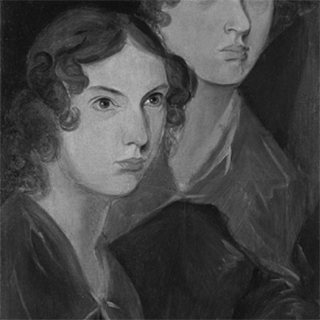Night
I love the silent hour of night,
For blissful dreams may then arise,
Revealing to my charmèd sight
What may not bless my waking eyes.
And then a voice may meet my ear,
That death has silenced long ago;
And hope and rapture may appear
Instead of solitude and woe.
Cold in the grave for years has lain
The form it was my bliss to see;
And only dreams can bring again
The darling of my heart to me.
This poem is in the public domain. Published in Poem-a-Day on November 22, 2025, by the Academy of American Poets.
“Night” was written by Anne Brontë early in 1845, but was not published until 1915, when it appeared in Brontë Poems (Smith, Elder & Co., 1915). About the poem, Krisztina Kodó, department chair of English at Kodolányi János University of Applied Sciences in Hungary, wrote in her article, “Cultural Reflections of Time and Space that Contradict a Legacy in Anne Brontë’s Poetry” found in Open Cultural Studies, Vol. 6, No. 1 (2022), “This short poem, titled ‘Night’ and consisting of three stanzas with abab alternating rhymes, offers yet another honest approach to Anne’s reality. This poem was written while Anne was still employed by the Robinsons as governess, during the time Anne’s brother Branwell was having an affair with Mrs. Robinson.” Kodó continues, “The poem draws a distinct parallel between night and day, where the night is the ‘silent hour of night’ when ‘blissful dreams’ emerge, and the day is associated with ‘solitude and woe.’ Furthermore, night is traditionally the time for magic and the supernatural, a theme that is intricately woven into the fabric of the poem as it offers ‘hope and rapture’ and ‘bliss.’ Through the dreams of the I-speaker, long-awaited desires visualize and ‘bring again the darling of my heart to me.’”

